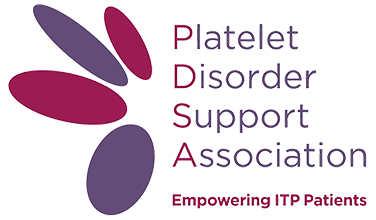Additional Materials
Program Overview
This podcast will review the benefits and limitations of current treatment strategies and provide an overview of upcoming therapies in clinical trials. Learners will gain insight into patient stratification and treatment selection for children with ITP.
Learning Objectives
Upon completion of this activity, the learners should be able to:
- Describe the new and investigational therapies and their role in treatment algorithms for pediatric ITP
CME Accreditation:
In support of improving patient care, The France Foundation is jointly accredited by the Accreditation Council for Continuing Medical Education (ACCME), the Accreditation Council for Pharmacy Education (ACPE), and the American Nurses Credentialing Center (ANCC) to provide continuing education for the health care team.
Physician Credit Designation:
The France Foundation designates this live activity for a maximum of 0.25 AMA PRA Category 1 Credit(s)™. Physicians should claim only the credit commensurate with the extent of their participation in the activity.
All other health care professionals completing this course will be issued a statement of participation.
Instructions for Participation and Requesting Credit:
There are no fees for participating and receiving credit for this activity. Successful completion is achieved by reviewing the CE information, completing the activity, and completing the posttest and evaluation form.
Credit Fulfillment
If you are requesting AMA credits, or a certificate of participation, your certificate will be available for download.
Technical Requirements
This site and its activities are best viewed using the latest versions of the Chrome, Edge, Firefox, and Safari browsers.
Additionally, this site and its activities are best viewed using the latest operating system for your device.
Accredited Provider
This activity is provided by The France Foundation.




